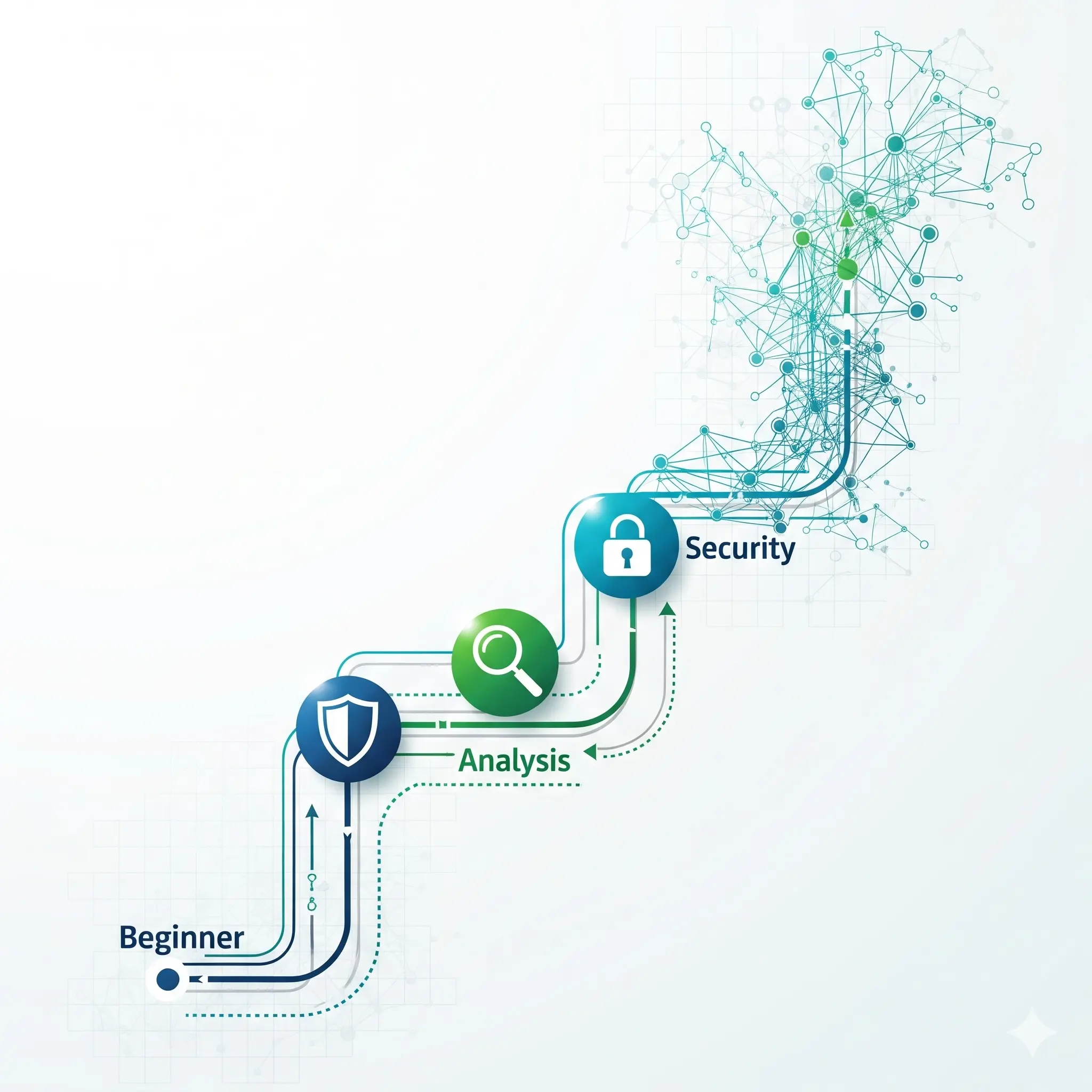Time to Start Your Cybersecurity Career Journey
In our previous posts, we learned the fundamentals of cybersecurity by thinking like a hacker. Now, it’s time to turn that knowledge into a career. Cybersecurity is not just about writing code or catching a hacker; it’s a dynamic field that requires continuous learning and problem-solving skills. To avoid getting lost in this jungle, it’s crucial to take your first steps correctly.
1. The Most Common Entry Point: The SOC Analyst
For most people aspiring to enter cybersecurity, the most logical starting point is the SOC (Security Operations Center) Analyst position. A SOC analyst is the digital security guard of a company. They work 24/7, monitoring all network activity, detecting anomalies, and responding to potential threats.
- Real-World Scenario: One morning, a SOC analyst notices on their security dashboard that one of the company’s servers is sending more data traffic than usual. This could be a sign of a potential data breach. The analyst quickly investigates the situation, identifies the source of the traffic, and notifies the system administrator, preventing a potential disaster. This is just one of the scenarios a SOC analyst faces daily. This role will provide you with both technical knowledge and practical experience.
2. Certifications That Will Accelerate Your Career
Employers value not only knowledge but also the credentials to prove it. The following certifications are the most popular starting points that will help you open doors in your cybersecurity career:
- CompTIA Security+: This is the most widely recognized entry-level certification in the industry. It covers fundamental cybersecurity concepts, network security, risk management, and cryptography. It’s the most important certificate to make your resume stand out when job hunting.
- Google Cybersecurity Certificate: This program is specifically designed for beginners. It offers a completely online and flexible learning process. Its focus on practical skills and industry recognition makes it a great starting point.
These certifications focus on real-world scenarios in addition to theoretical knowledge, which will make you feel more confident during job interviews.
Conclusion: This Beginning is a Turning Point for You
Remember, every expert was once a beginner. What matters is taking the first step and committing to continuous learning. By starting as a SOC analyst, you can gain experience and then move into more specialized fields like penetration testing, cyber forensics, or cybersecurity architecture. This is an endless journey, and you are writing your own story along the way.
In our next post, we will discuss how to prepare for these certifications and your first job interviews.
